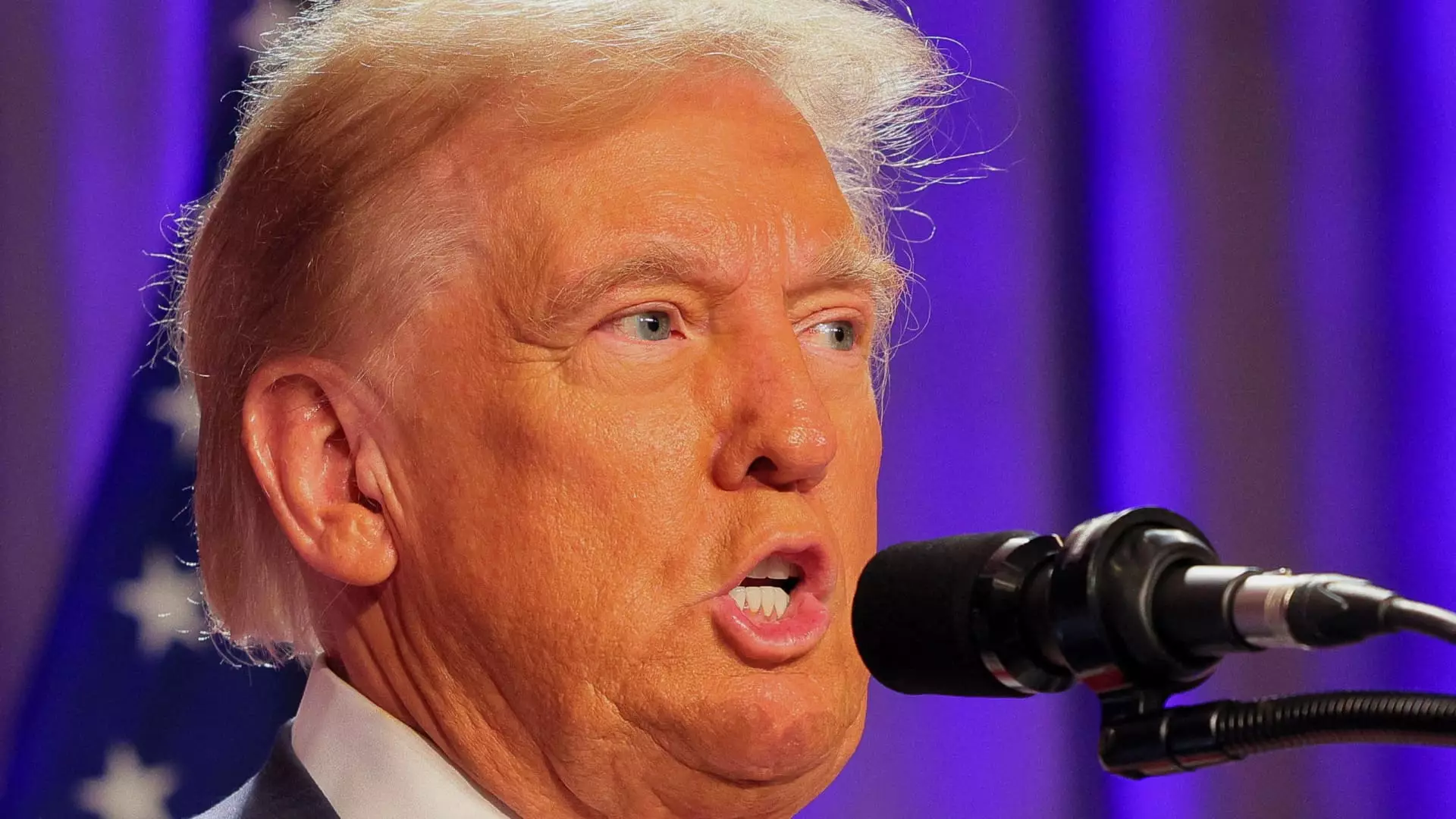The landscape of American foreign policy is set to change dramatically with the impending administration of President-elect Donald Trump. The recent interview on NBC’s “Meet the Press” sheds light on his intentions regarding military support for Ukraine and America’s commitments to NATO. His comments reveal not only his approach to international relations but also his perception of America’s role on the world stage.
In his conversation with NBC News correspondent Kristen Welker, Trump hinted at a possible reduction in military aid to Ukraine, which is particularly noteworthy given the context of the ongoing conflict between Ukraine and Russia. Trump stated that while the U.S. has committed an enormous $350 billion in support since the onset of the war in February 2022, European nations have contributed significantly less—around $100 billion. This discrepancy has raised eyebrows and could signal a shift in America’s strategic priorities once Trump takes office. He posed a rhetorical question, implying that it is unjust for European countries not to match U.S. contributions, leading to concerns about the future of international support for Ukraine.
Trump’s remarks reflect a long-standing skepticism towards NATO and military alliances. He underscored that NATO member states must “pay their bills,” which aligns with his populist message that America should not bear the brunt of financial obligations to allies. This stance may resonate with segments of the American population who feel overburdened by foreign commitments, but it raises questions about the durability of transatlantic alliances and collective defense strategies, particularly in light of the rampant aggression displayed by Russia.
The interview illuminated Trump’s views on Ukrainian President Volodymyr Zelenskyy, whom he described as perhaps the greatest salesman in politics. This characterization suggests that Trump may attribute the influx of military aid to Zelenskyy’s charisma and negotiation skills rather than a more profound assessment of Ukraine’s strategic needs. This perspective is troubling, as it risks downplaying the genuine humanitarian and security crises that Ukraine faces. Aid should be based on the dire circumstances stemming from Russian aggression rather than having the ability to ‘sell’ the situation to international partners.
Moreover, Trump’s comments indicate a potential shift in priorities. By implying that European nations have a greater stake in the conflict, he could inadvertently weaken Western resolve against Russian expansionism. If the U.S. reduces its assistance to Ukraine, it may embolden Russia, leading to severe repercussions not only for Ukraine but also for Europe and, by extension, U.S. interests in the region.
Trump’s history of threatening NATO withdrawal highlights a tracking concern involving America’s commitment to mutual defense. This is particularly concerning given the alliance’s objective of countering Russian influence and aggression. The idea that European nations should significantly increase their spending on defense fronts the argument that U.S. security is disproportionately threatened by Europe’s dependence on American military support, despite the geographical reality of threats posed by Russia to both Europe and Ukraine.
Trump’s previous rhetoric and his current insinuations may incite tension within NATO, possibly galvanizing adversarial interests. The stability of NATO has proven critical in countering threats from adversaries, all while fostering cooperation among member nations. A retreat from this cohesive front may have ramifications that extend worldwide, potentially inviting more aggressive posturing from countries like China and Russia.
Trump’s assertion that he could resolve the conflict in Ukraine swiftly upon taking office is steeped in his self-assuredness regarding his “good relationships” with leaders like Vladimir Putin and Xi Jinping. His recent claims of having direct communication with these figures—it remains unverified as to whether he discussed critical issues such as Ukraine—illustrate his diplomacy’s personal nature. However, reliance on personal rapport can be perilous; international relations require systematized strategies, shared values, and collective action rather than dependence on individual personalities.
There is a further implication in Trump’s notions about negotiations—a ceasefire that would allegedly lead to peace talks could misconstrue the complexities and historical grievances within the region. An approach that lacks a nuanced understanding of geopolitical intricacies may lead to superficial resolutions that fail to address root causes or long-standing tensions.
As Trump prepares to assume the presidency once more, the implications of his proposed foreign policy approaches cannot be overstated. A pivot away from robust support for Ukraine and a focus on transactional relationships may alter America’s role in world affairs, challenging the very fabric of the alliances built over decades. The upcoming years will demand recalibrated discussions surrounding military aid, transatlantic partnerships, and collective action concerning global threats. The stakes are higher than ever, and with them comes the question of whether America can maintain its commitments to its allies while addressing the emerging complexities of the geopolitical landscape.

